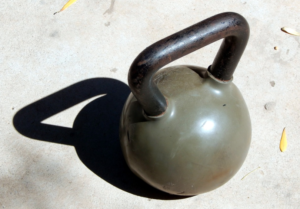Honor in the Old Testament
“How heavy are you?” In Western contexts, this question can be offensive. But in honor-shame cultures, the very question can be a gesture of respect because their mindset often assumes “weight=honor.”

Here are a few examples from Central Asia. The slang word for a man’s gut is “authority.” The word for skinny is “sick,” and the word for healthy is “fat.” The word for a respected authority is “big.” The logic is rather simple: Anyone who eats enough to gain excess weight must be an important person because they control resources. Heaviness implies importance.
This “weight=honor” mindset sheds light on the OT concept of honor. The primary Hebrew word for honor is kvd. The word is central to Old Testament culture and theology; the verb kvd occurs 173x and the noun kavod occurs 200x. The main meaning is “weight,” which then carries a metaphorical sense of weightiness, importance, and honor. Here are some ways the word is used.
The initial meaning is weight or heaviness (Exo 17:12; 2 Sam 14:26; Eze 27:25; Lam 3:7). From there, the word is used abstractly for things that are “severe” (Gen 12:10), “burdensome” (2 Sam 13:25; Psa 38:4), “forceful” (Exo 5:9; Psa 32:4; 1 Sam 31:7), or even “ineffective/dull/hardened” (Exo 10:1; Isa 59:1). Even in English, we use “heavy” in various ways: a heavy snowstorm, the debt weighted heavily, “bro, that’s heavy!” The Hebrew word also refers to “wealth” and “riches,” as the most valuable objects, like gold and silver, were the heaviest (Isa 61:6; Judges 18:21).
The most common meaning of kvd is “glory.” This sense of the word can also describe the majesty and splendor of inanimate objects (Isa 60:13; Exo 28:2; Hag 2:3). However, the word mostly refers to a person’s “social weight,” their honor and distinction. The word can be associated with humans (Hab 2:16; Prov 20:3; Isa 17:4; Job 14:21), but the overwhelming usage of kvd refers to God’s glory. Here are 4 aspects:
- God innately possesses glory (Isa 42:8; Psa 113:4; 138:5; Ezek 39:21; Zech 2:5). God, by his very nature, is the God of glory.
- God emanates glory (Duet 5:24; Psa 19:1; 72:19; 1 Kings 8:11; Isa 6:3; Eze 8:4). This refers to the manifestation of God’s power, authority, and honor.
- Humans are to “give glory” to God (Josh 7:19; Isa 42:12; Mal 2:2; Psa 29:1).
- God also “gives honor/glory” to people. (1 Sam 2:29; Psa 3:4; 8:5; 91:15).
The Greek OT (Septuagint/LXX) often translates kvd as doxa. However, that does not mean the two words/concepts are the same. Kvd can mean heavy or weighty, and doxa can mean radiant light, but those are unique meanings for each word. However, the words do overlap significantly; they both abstractly denote a person’s glory and honor.
Hdr is another OT word related to honor, occurring about 40 times. The noun means splendor and majesty, often in a royal sense (Psa 21:6; 96:6; Prov 20:29; Job 40:10). Both kvd and hdr appear in Psalm 8:5: “You have made them a little lower than the angels and crowned them with glory (kavod) and honor (hdr).”
- 7 Problems with Defining Honor and Shame
- “Honor” in the Old Testament
- “Shame” in the Old Testament
- “Honor” in the New Testament
- “Shame” in the New Testament

This was very good at expanding my understanding of the terms honor and glory. Now when I try to help people understand what it means to follow God, I can ask them, “How much weight does God hold in your decisions?” Or “If you choose to follow Jesus you must give him the weight of influence he deserves in everything you do.”
I had never thought of giving God glory to include the idea of giving him influence and control. If a person wonders where they stand spiritually with God, they can ask themselves how much weight His words carry in every decision they make. This will show clearly who they are following 🙂
Thank you!
Thank for this thoughtful essay. In light of Scripture’s and the culture’s value on weight and age, how do you interpret 1 Samuel 4:18?
“When he mentioned the ark of God, Eli fell backward off his chair by the side of the gate. His neck was broken and he died, for he was an old man, and he was heavy. He had led Israel forty years.” (ESV)
From a western perspective, Eli’s age and weight are an opprobrium, part of a general censure of his life and ministry. However, if weight and age are to be honored, how does that affect the understanding of the entire passage?
Thanks.